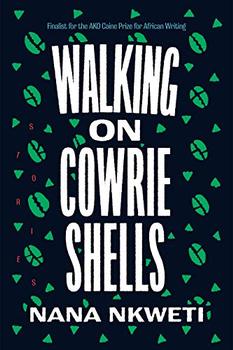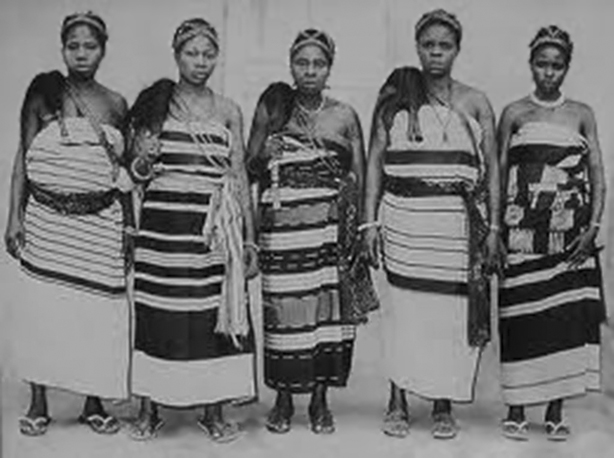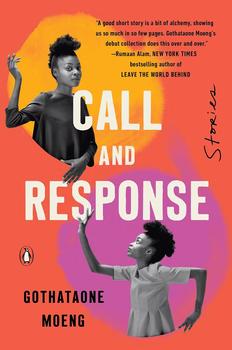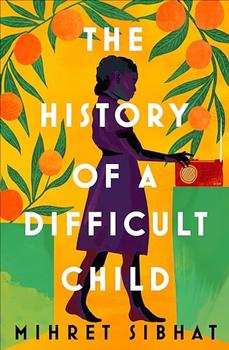Summary | Excerpt | Reviews | Beyond the book | Read-Alikes | Genres & Themes | Author Bio

A "boisterous and high-spirited debut" (Kirkus starred review), named one of the Most Anticipated Books for Brittle Paper, The Millions, and The Rumpus, penned by a finalist for the AKO Caine Prize.
In her powerful, genre-bending debut story collection, Nana Nkweti's virtuosity is on full display as she mixes deft realism with clever inversions of genre. In the Caine Prize finalist story "It Takes a Village, Some Say," Nkweti skewers racial prejudice and the practice of international adoption, delivering a sly tale about a teenage girl who leverages her adoptive parents to fast-track her fortunes. In "The Devil Is a Liar," a pregnant pastor's wife struggles with the collision of western Christianity and her mother's traditional Cameroonian belief system as she worries about her unborn child.
In other stories, Nkweti vaults past realism, upending genre expectations in a satirical romp about a jaded PR professional trying to spin a zombie outbreak in West Africa, and in a mermaid tale about a Mami Wata who forgoes her power by remaining faithful to a fisherman she loves. In between these two ends of the spectrum there's everything from an aspiring graphic novelist at a comic con to a murder investigation driven by statistics to a story organized by the changing hairstyles of the main character.
Pulling from mystery, horror, realism, myth, and graphic novels, Nkweti showcases the complexity and vibrance of characters whose lives span Cameroonian and American cultures. A dazzling, inventive debut, Walking on Cowrie Shells announces the arrival of a superlative new voice.
Each story is a contained world with its own magic, each protagonist a fully realized construction with the walls of cultural expectations closing in around them. Some short story collections that cover many genres and styles can invoke a kind of narrative vertigo in which the reader struggles to keep up with a parade of jarring transitions, but that does not occur here. Nkweti is so deft at every turn and so confident, it is easy to trust in even the boldest and most abrupt swerves...continued
Full Review
(628 words)
This review is available to non-members for a limited time. For full access,
become a member today.
(Reviewed by Lisa Butts).
 In a story called "The Statistician's Wife" in Walking on Cowrie Shells, a Nigerian woman tells her white husband, "In 1929, ten thousand Igbo women started ogu umunwanyi, the Women's War. When men do wrong, we 'sit on you.' It's part of our tradition, how we protest."
In a story called "The Statistician's Wife" in Walking on Cowrie Shells, a Nigerian woman tells her white husband, "In 1929, ten thousand Igbo women started ogu umunwanyi, the Women's War. When men do wrong, we 'sit on you.' It's part of our tradition, how we protest."
Her description is accurate, but she is simplifying the historical event as a means of teasing her husband. The reality was much more complicated. British colonization of Nigeria began around the middle of the 19th century, and the Women's War was primarily a rebellion against colonial rule and the oppression of women.
In 1914, the British governor of southern Nigeria, Lord Frederick Lugard, placed the colony under the authority of local leaders called Warrant ...
This "beyond the book" feature is available to non-members for a limited time. Join today for full access.

If you liked Walking on Cowrie Shells, try these:

by Gothataone Moeng
Published 2024
Richly drawn stories about the lives of ordinary families in contemporary Botswana as they navigate relationships, tradition and caretaking in a rapidly changing world.

The History of a Difficult Child
by Mihret Sibhat
Published 2024
A breathtaking, tragicomic debut novel about the indomitable child of a scorned, formerly land-owning family who must grow up in the wake of Ethiopia's socialist revolution